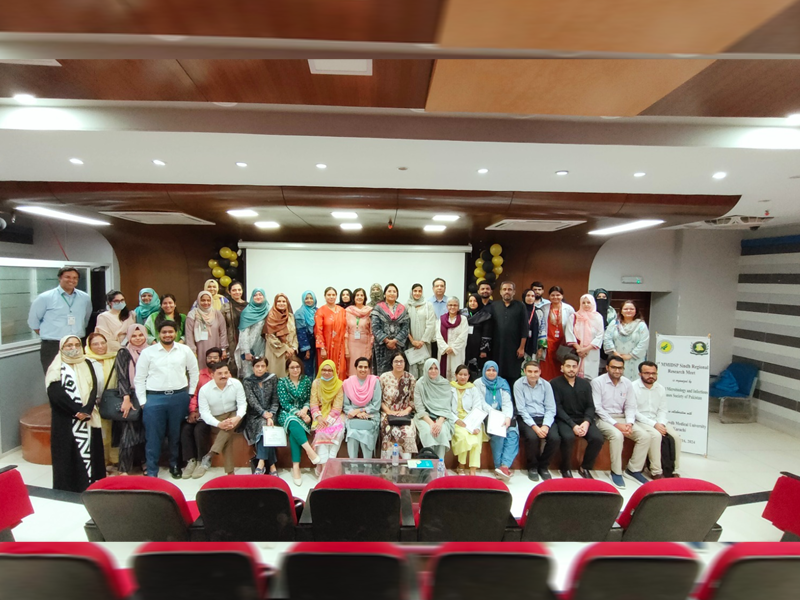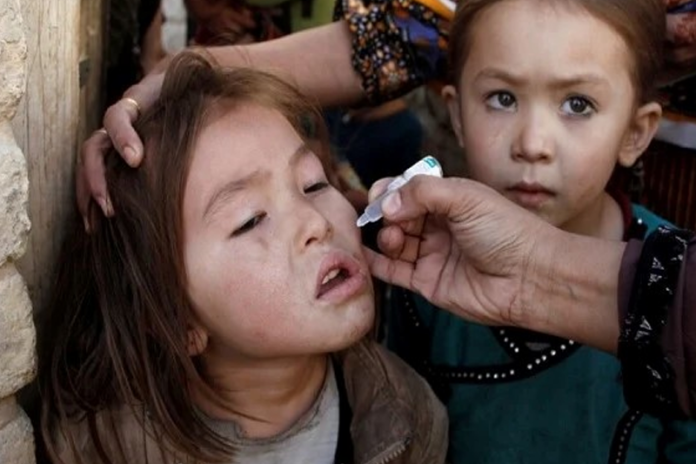Tackles 45% rise in pediatric typhoid, 25% surge in diphtheria
JSMU hosts MMIDSP Meet

- 146
- 0
KARACHI: The Pathology department of Jinnah Sindh Medical University (JSMU), in collaboration with Continuing Medical Education (CME) and the Medical Microbiology and Infectious Diseases Society of Pakistan (MMIDSP), recently organized the first MMIDSP Sindh Regional Research Meet at JSMU. The event focused on the theme of “Frontiers of Infectious Diseases and Microbiology.”
Dr. Kausar Jabeen, a leading expert on emerging infectious diseases, highlighted the rise of threats such as a 30% increase in Crimean-Congo hemorrhagic fever cases over the past 5 years, as well as outbreaks of polio, dengue, and Chikungunya in Pakistan. She emphasized the urgent need for improved disease surveillance, rapid diagnostics, and coordinated public health response to effectively manage these growing threats to public health security.
Dr. Naseem Salahuddin, a renowned tuberculosis researcher and infectious disease consultant , reported that new MDR-TB drug regimens achieved over 80% cure rates, a significant improvement over the 50-60% cure rates typically seen with existing treatments. The new regimens also reduced treatment duration from 24 months to just 9-12 months, which could greatly improve patient adherence and outcomes.
While Pakistan has seen a 90% reduction in polio cases since 2014, Dr. Ali Faisal, Pediatrician at AKU noted the country still faces challenges reaching remote communities. He discussed innovative strategies like environmental surveillance and engaging religious leaders that have been crucial to the polio eradication effort. Vice Chancellor JSMU, Professor Amjad Siraj Memon, addressed the attendees, stating, “Events like the MMIDSP Sindh Regional Research Meet are crucial in bringing together experts to share knowledge and drive innovations that can improve healthcare outcomes for our communities. The seminar’s discussions on the alarming 45% increase in typhoid fever cases among children under 5, as well as the 25% rise in diphtheria cases over the past 3 years, highlight the urgent public health challenges we must address through collaborative research and effective interventions.

















































